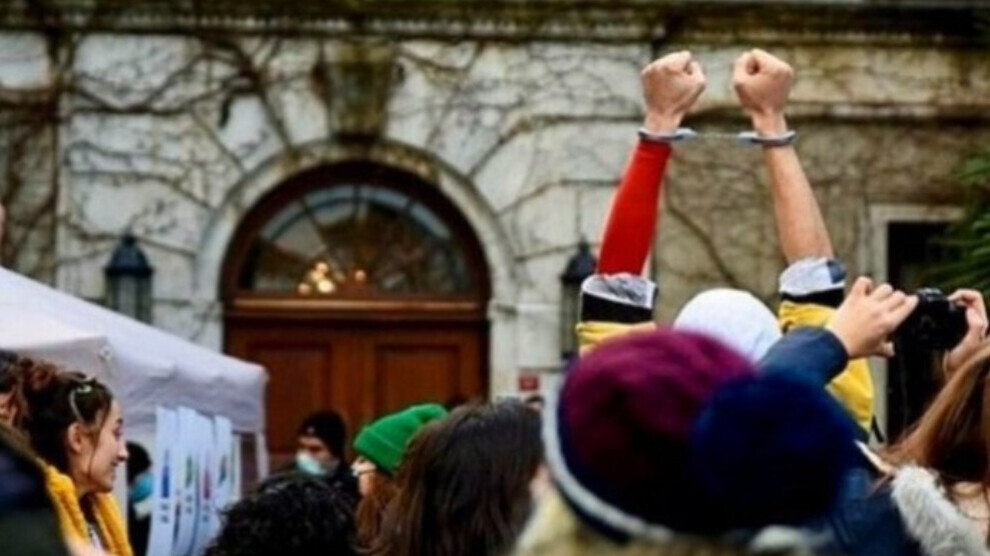Court remands two students in custody accused of inciting hatred
Two students from Istanbul's Boğaziçi University have been arrested for inciting “hatred, hostility or humiliation”.
Two students from Istanbul's Boğaziçi University have been arrested for inciting “hatred, hostility or humiliation”.

A total of 5 students from Istanbul's Boğaziçi University have been arrested accused of inciting “hatred, hostility or humiliation” under Article 216/1. One student was later released, two were remanded in custody and two were released under judicial control.
These arrests are set against a background dominated by a lynch campaign against a protest exhibition at the university.
The students of the Boğaziçi University were arrested on Friday evening. The basis is an investigation by the Istanbul Public Prosecutor's Office into a protest targeting Melih Bulu, the longtime supporter of Recep Tayyip Erdoğan's AKP who was appointed new rector by presidential decree at the beginning of the year. An appointment aimed at bringing Istanbul's most important university on the AKP line. A movement was formed against the attack on the university's autonomy and the violation of university ideas and values. The movement calls for the removal of the government-appointed rector.
Ministers take part in lynching campaign
The proceedings against the Boğaziçi students were only initiated after the Turkish media had started a lynch campaign writing that “some LGBT perverts” had misused a photo of the holy Kaaba in Mecca for their protest. The reports refer to a piece in the exhibition showing the mythical figure Şahmaran and rainbow flags. Şahmaran is considered the goddess of wisdom and protector of secrets in Anatolia, Kurdistan and other regions in the Middle East.
The lynch campaign against the students has seen also top government officials in the front line, including the Justice and Home Affairs Ministers, the Vice-President, the head of the State Authority for Religions, the Governor of Istanbul and the Board of the Turkish University Council (YÖK).
Students face up to three years of imprisonment
If students are convicted under Article 216/1, they face prison terms of between twelve months and three years. The law says: “Anyone who publicly calls for hatred and enmity against sections of the population who have different characteristics (social class, race, religion, denomination or origin) and is thereby a danger to public peace will face imprisonment punished for up to three years, whereby the minimum imprisonment must be twelve months."